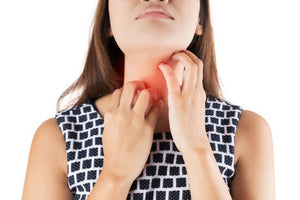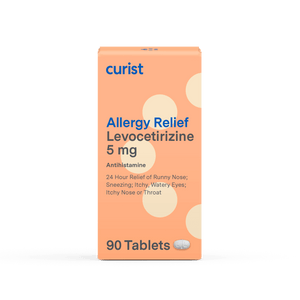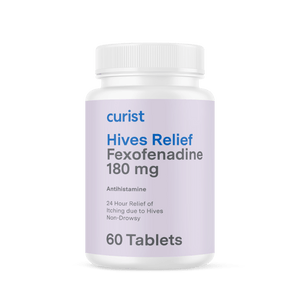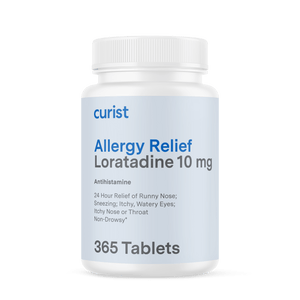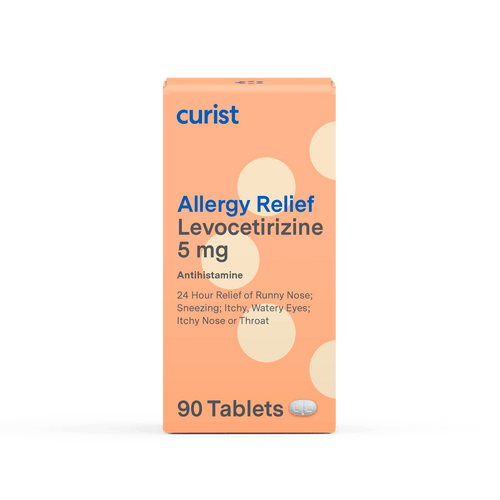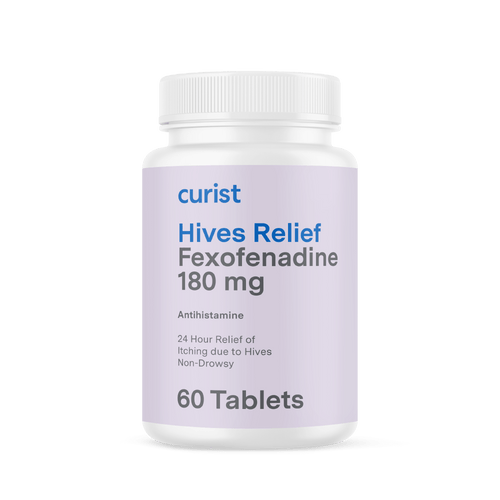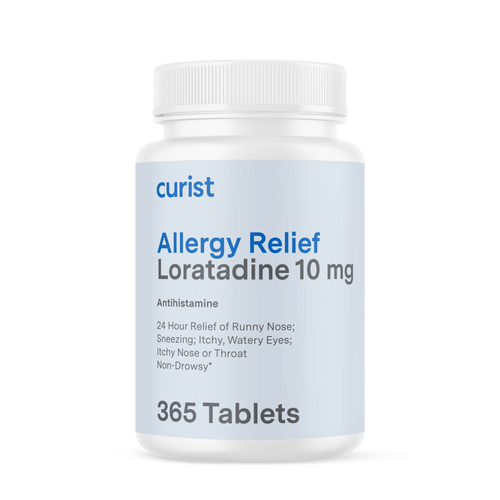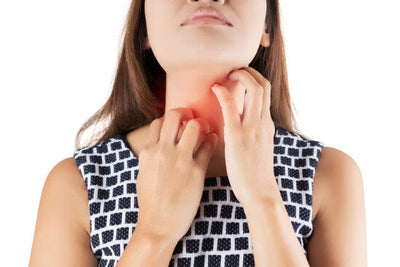by Dr. Waverly Yang, Pharm D, Curist Pharmacy Advisor and Dr. Marc Goldstein, MD, Curist Medical Advisor. Updated September 2020.
Curist delivers over-the-counter medicines to your door at a fraction of the price of traditional brands. We hope everyone stays safe and healthy during this time.
Why Is My Tongue Itchy? Is Tongue Itching an Allergic Reaction?
The most common cause of an itchy tongue is oral allergies. Oral allergy syndrome (also known as pollen-food syndrome) is caused by a cross-reaction of allergens that come from inhaling pollen or eating raw fruits, vegetables, and certain tree nuts. The proteins in these foods mimic allergenic proteins in pollen, ragweed, and other common allergic triggers. Symptoms may include an itchy roof of the mouth or throat and minor swelling of the tongue and lips. Because these allergenic proteins are easily destroyed by heat, you can still eat cooked versions of these foods with oral allergy syndrome without having an allergic reaction. So if your tongue itches after eating fruit, vegetables, or nuts, it’s likely a symptom of oral allergy syndrome.
Itchy Tongue: Oral Allergies vs Food Allergies
Although symptoms occur soon after consumption, oral allergy symptoms, like itchy tongue or itchy roof of mouth, are usually mild and don’t last very long. Oral allergies are different from food allergies, which often affect other parts of your body including your gastrointestinal tract, skin, and respiratory tract. In rare cases, food allergies and severe oral allergies could lead to anaphylaxis which is a dangerous allergic reaction and medical emergency. If your itchy tongue becomes more severe or you begin to experience symptoms such as hives, major swelling, trouble breathing, and a rapid heart rate, you should seek emergency medical attention because anaphylaxis can be life-threatening. Itchiness of the mouth or throat caused by consumption of peanuts, soybeans, almonds, and hazelnuts can be an initially mild allergic reaction that could turn into a more severe allergy with a risk of anaphylaxis later on, so speak with an allergist if you experience symptoms when eating nuts.
If Not Allergies, What Else Can Cause My Itchy Tongue?
Other potential causes for an itchy tongue can include:
- Cold sores: Sores that usually form on your lips or around your mouth. Before the sores form, some people experience an itchy or tingling mouth or tongue. Cold sores often resolve on their own, but check with your doctor if your cold sore lasts for more than two weeks.
- Thrush: A yeast infection in your mouth that often includes dryness of the mouth, oral pain, and white patches on your tongue or in your mouth. Oral yeast infections will often require prescription antifungal medications and mouthwash, so you should see your doctor to get the appropriate medications.
- Dental Issues: Sometimes, inflammation or infections in your teeth or other areas of the mouth can cause itching or pain in the tongue. If your itchy tongue is accompanied by tooth pain or pain in other parts of your mouth, check with your dentist to see if dental issues may be the cause of your symptoms.
How Do I Treat Tongue Itchiness and Oral Allergies?
The best way to treat oral allergies is to avoid food allergens or cook the raw foods that typically trigger a reaction. The American Academy of Allergy, Asthma & Immunology has published a list of triggering foods and their associated pollen. Remember, even oral allergy sufferers can still enjoy many fruits and vegetables if cooked thoroughly.
As with most allergies, antihistamines are also a great treatment option to relieve the itchy sensation in your mouth and tongue. Antihistamines like Curist Allergy Relief are an effective option for treating oral allergy symptoms.
What's the Best Antihistamine For Itchy Tongue?
Antihistamines are a type of allergy medicine that treat itching, like itchy tongue. There are several antihistamine options to treat itchy tongue. Diphenhydramine (brand Benadryl) is a first-generation antihistamine, which is very effective for treating itchiness, but has a strong drowsy side effect so often is not recommended for daily use. Second-generation antihistamines, like loratadine (brand Claritin), fexofenadine (brand Allegra), and cetirizine (brand Zyrtec), are also effective antihistamines for treating itchy tongue but have less (or no) drowsiness associated. The newest option, a third-generation antihistamine like levocetirizine (brand Curist) is the best antihistamine for itchy tongue - as it's very effective at treating symptoms with minimal drowsiness. It's also available at Curist shipped right to your door!



